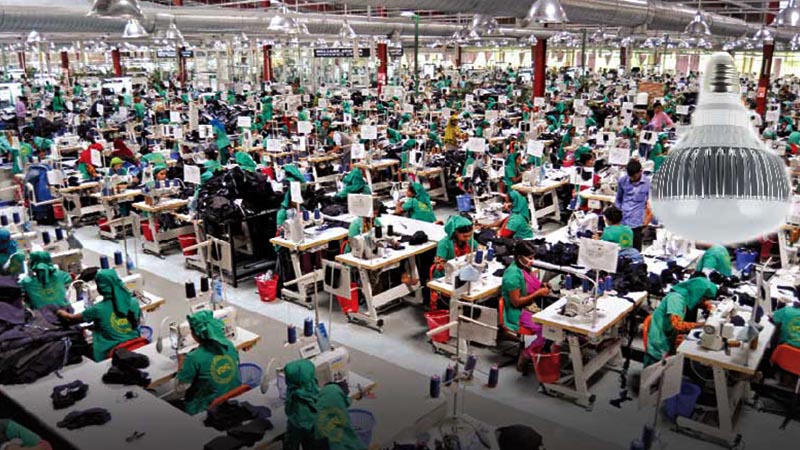Automation not a major concern in RMG

Garments factory owners are increasingly introducing robotics and auto machines in the Ready Made Garments (RMG) industry which may generate labour unrest in the country. However, the experts believe that would not be a major concern as the automation would ensure quality and cost effective production and ultimately it would bring a positive impact in the national economy.
Bangladesh would not face negative impact of automation in Ready Made Garments (RMG) industry as it is still gaining ground in the global business and has huge opportunities to expand in world market, experts said. They also said that introducing automatic machines in the RMG industry will also be a big challenge due to high cost of machines, operation and maintenance and capability of owners.
Experts while sharing their views said that there is little to worry about automation in the garments industry in Bangladesh. The issue is something that the experts believe would be a major concern in the long run. Talking to Bangladesh Post, Economist Mostafizur Rahman said, “There is a huge opportunity to expand the RMG industry in Bangladesh. I don’t want to give too much importance about the automation process in this sector.”
He said, “The production and its cost using automatic machines to manufacture garments will determine whether this sector will survive in the country. RGM industry in Bangladesh is still dependent on cheaper labour. The Nearshoring of this type of big companies is a big challenge. Due to its huge cost involvement automation in RMG industry in Bangladesh may take a while.”
He also emphasized on expanding the existing prospects. Mostafizur Rahman said, “China is in the top position as RMG exporter in the world market. They supply about 30 percent of the total demand. Next comes Bangladesh, which is in 2nd position. It supplies a substantial amount of RMG in the global market.”
On the other hand, Sarah Crisly, Chairperson of Shimi technology said, “There is no alternative to opting for digital technology for Bangladesh in the near future. Bangladesh will lag behind if they do not invest for automation in the garment industry.” Fazlul Hoque, former president of the Bangladesh Knitwear Manufacturers & Exporters Association (BKMEA) told Bangladesh Post, “The risk of automation in garment sector is not related to the present situation of Bangladesh.”
Garment industry entrepreneur Fazlul Hoque said that he does not see this type of apprehension. BKMEA former president said, “Robots will be compared and replace the manpower of garment sector, as a result the industry will no longer exist in Bangladesh, it will return to Europe and America.”
Hoque said, “That is not right. I have not yet come across any study about what will be the operational cost if robot comes in place of a human being, whether everyone could invest for it? I did not get its answer.” Fazlul Hoque said, “More than 200 workers used to work in cutting section in a middle-sized garment factory. Now, only 10 to 12 are working there due to automation. That means one tenth people are required now. This type of automation is going on. There is no doubt that there will be a huge change in this industry in 10 years.”
He also said “Workers, who have lost their work due to automation, get their employment opportunity in this sector at any way. Because, this sector is still alive in Bangladesh.” Garment labor leader Shefali Akter while sharing her views with Bangladesh Post said, “As I engage in trade union, I visit different industries. She also expressed her concerns about introduction of automatic machines in the RMG industry saying, “The number of workers is gradually decreasing as a result of automation in many garment industries.”
The Centre for Policy Dialogue (CPD) conducted a research on which types of equipment has been imported for garment industries. Economist Dr Mostafizur Rahman, a fellow of CPD told this correspondent, “It is clear that a positive change has begun. Garment owners are now importing different types of automatic machines compared to past. Many are importing robots to avoid using manual labour.” According to Mostafizur Rahman, Bangladesh will not get the benefit of tariff-free export when they will go out of the list of the least developed countries.




